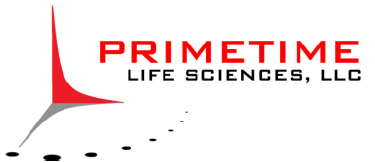The Scientific Advisory Board (SAB) consists of a group of distinguished academic and industry researchers who conduct a scientific review or technological reviews.
Prof. David Weber, Ph.D.
Dr. Weber is a Professor of Biochemistry & Molecular Biology and the director of the Center for Biomolecular Therapeutics (CBT). The CBT is part of the University System of Maryland and has faculty from the University of Maryland–Baltimore (including the Schools of Medicine and Pharmacy) who manage state-of-the-art scientific, discipline-based programs necessary for the discovery and regulation of disease targets including, but not limited to, genomics/bioinformatics, target identification, and validation, assay development and high-throughput screening, protein production and characterization, structural biology, computer-aided drug design, medicinal chemistry, and in vivo testing and biology. We are also examining basic science questions pertaining to protein-protein interactions involving numerous other protein targets as possible therapeutic targets, so the significance of this work is very high. His lab also collaborates with principal investigators throughout the University System of Maryland on numerous structure, function, and drug design projects. He is serving as an editorial member of more than 10 journals and has authored more than 150 research articles & book chapters involving basic science and biomedical therapeutics advances.
Gian Luca Araldi, Ph.D.
Dr. Araldi is a pharmaceutical and biotechnology executive with more than 30 years of experience having responsibilities ranging from basic research through clinical development at major pharmaceutical companies, including Glaxo, Forest Laboratories, and Merck-Serono. Dr. Araldi has been involved in the development of key medicines such as Teflaro®, Dutogliptin®, Gavestinel®, Sanfetrinem® and Sanfetrinem® Cilexetil and is the inventor of 115 granted patents.
His areas of expertise span from medicinal chemistry to process development, manufacturing , and project management. He has worked in diverse therapeutic areas throughout his career, including oncology, cardiovascular disease, neurological disorders, and immunology, where he has obtained many breakthrough results. In addition, he has fostered constructive relationships with many academic laboratories, biotech, pharma companies, and government institutions, both domestic and foreign. Dr. Araldi has a doctorate in Organic Chemistry, and a doctorate in Pharmacy awarded from the University of Parma (Italy). He also received an MBA in Finance from Long Island University (LIU) and a PMP certification from the Project Management Institute (PMI).
Prof. Tsvetan Serchov, Ph.D.
Prof. Tsvetan Serchov is leading a group at the Institute of Cellular and Integrative Neuroscience (INCI) Strasbourg, with a focus on molecular and cellular mechanisms of antidepressant therapy.
Prof. Serchov has expertise in the molecular mechanism of regulation of the circadian clock and mouse rhythmic behavior. He worked with Professor Dietrich van Calker (University Medical Center Freiburg, Germany), who is known for his discovery of the different adenosine receptor types, to generate a new transgenic mouse with conditional expression of adenosine A1 receptors, representing a model to study the mechanism of action of sleep deprivation in mood disorders. He moreover identified the induction of the homeostatic synaptic protein Homer1a, as a novel common pathway mediating the effects of several different antidepressant treatments (Serchov et al., 2015, Neuron). His recent research findings show that the antidepressant effects of sleep deprivation depend on enhanced glutamatergic signaling. Furthermore, the Serchov laboratory has introduced a new approach utilizing peripheral administration of cell-penetrable TAT-peptides, which elicit rapid antidepressant effects, as a potential novel therapeutic strategy (Holz et al., 2019, Neuron).
Bradley K. Gillespie, Pharm.D.
Dr. Gillespie has nearly 25 years of experience in the pharmaceutical/biotech industry and federal institutes focused on the development process of biologic and small molecule therapeutic products. While he is responsible for all aspects of development from lead optimization through product approval and post-marketing activities, his core expertise is in the strategic planning, conduct, analysis and interpretation of early development programs (GLP toxicology through human phase 2 clinical trials). He began his career as a pharmacokinetic reviewer at the U.S. Food & Drug Administration, then rose to higher levels of responsibility in the industry with posts at Pharmacia and Amgen. After joining the POM Wonderful Company to establish a clinical development group in support of their line of nutritional supplements, he returned to government service, leading virtual development efforts at the NCATS/NIH (rare and neglected diseases). Most recently he has been working under contract with the Department of Defense, providing strategic drug portfolio leadership and decision analytics for their medical countermeasures efforts. Brad has mentored other drug development scientists and health professionals by workshops to the pharmacy, nursing, and other medical professionals.
